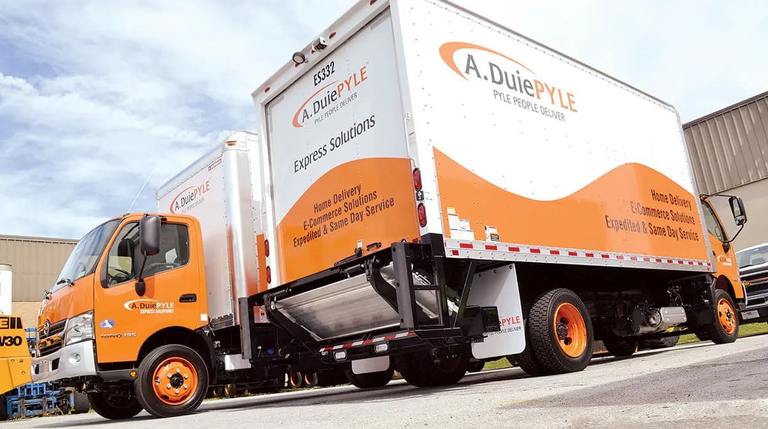
What Supply Chain Term Will Be Top of Mind in 2025?

Convergence because we can’t afford to have planning and operations working in their separate silos where plans can’t be executed or if they can they are very expensive to execute. Good companies plan. Great companies execute.
–Tom Moore
Founder & CEO
ProvisionAi
Optimization. 2025 will be a year of optimization as companies look to offset the impact of prior years’ high inflation. After considerable effort spent improving our supply chain footprint, sustainability profile, and tools/processes over the past two years, we’re looking forward to building on that to optimize how we make and deliver our products.
–Crist Jennings
COO
Bragg Live Food Products
Stagflation—a mix of slow growth and rising costs—could challenge shippers, carriers, and third-party logistics providers, squeezing profit margins. To navigate, companies should diversify suppliers, leverage technology to enhance efficiency, and evaluate transportation models. Plan for reduced demand and increased costs now.
–Frank Granieri
COO, Supply Chain Solutions
A. Duie Pyle
Data-driven supply chains. Companies have been investing in technology that creates massive amounts of supply chain data—customer behaviors, orders, warehousing, delivery, vehicles, drivers, and more. It is increasingly necessary to use AI to create meaning from data. If companies do not start to make sense of it, they’ll be left behind in the wave of innovation coming from AI-based analytics.
–Cyndi Brandt
Vice President, Fleet Solutions
Descartes
Artificial Intelligence Commands Attention
AI will be the defining supply chain term in 2025. This high-potential technology will deliver real benefits across many processes—from predictive analytics to automation and real-time optimization. Implementing AI will be indispensable for managing risks and staying competitive as supply chains grow more complex.
–Lilian Bories
Director, Marketing
TradeBeyond
The true power of artificial intelligence capabilities has yet to be seen, and we are all trying to figure out how to deploy it effectively in our businesses. AI will play a major role in supporting sustainability initiatives, personalization of customer and worker experiences, supply chain visibility, quality, accuracy, and overall customer satisfaction.
–Bart Cera
CEO
VARGO®
An obvious answer, but it’s clearly artificial intelligence. Adopt it or be a laggard. It will dominate discussions.
–Mark McEntire
CEO
Princeton TMX
Cross-border will be top of mind. International sales are growing at twice the rate of domestic sales, and as ecommerce booms, international markets present huge opportunities. Without a solid cross-border strategy, companies face risks like delayed shipments, higher costs, compliance issues, and poor customer experience—damaging customer trust and brand growth.
–Sylvia Ng
CEO
ReturnBear
Scenario planning. Disruptions, from labor strikes to geopolitical tensions, defined the supply chain in 2024 and have become the new normal in operations. Businesses must proactively brace for disruptions via near- and long-term scenario planning.
–Ara Ohanian
CEO
Netstock
Digital twin technology will grab the spotlight as supply chains confront unprecedented complexity and unpredictability. Digital twins will evolve from niche tool to essential asset, enabling companies to simulate and stress-test entire networks, anticipate disruptions, and optimize operations.
–Fred Baumann
Senior Industry Principal
Kinaxis
Predictive analytics will lead supply chain conversations, as small businesses leverage it to sharpen demand forecasting. With better planning, businesses can dodge costly surprises, reduce expedited shipping, and avoid overstocking, streamlining their entire supply chain.
–Ben Hussey
Co-CEO
Katana Cloud Inventory
Sustainability. Augmented reality and 3D modeling will drive this focus by reducing returns and waste. They streamline operations, aligning supply chains with the increasing consumer and business demand for sustainable practices.
–Angelo Coletta
CEO & Founder
Zakeke
Resilience Tops Priority Lists
Building resilient supply chains involves embracing risk management, diversifying suppliers, and boosting adaptability to handle disruptions.
–Kelly Martinez
Founder & Co-President
ePost Global
Resiliency will be the key supply chain term. As companies adapt to changes like de minimis limits, they’ll notice reliance on a single supply chain strategy or single carrier isn’t always the best option. Cyber resilience will also be crucial as recent attacks have exposed supply chain vulnerabilities.
–Maggie Barnett
CEO
LVK
Supply chain resilience will be top of mind, driven by climate-related disasters, post-pandemic cost-cutting, and political instability. Supply chains will use artificial intelligence models and simulations that predict global disruptions, expose supply chain vulnerabilities, and identify opportunities for value generation.
–Matthew Bunce
Decision Intelligence Engagement Principal
Aera Technology
We’ve seen the impact disruptions like weather events and geopolitical instability can have on global supply chains. We anticipate the continuation of these challenges. By prioritizing proactive risk management and diversifying your supply chain, you can mitigate interruptions in your operations and become resilient.
–John Marrow
President, Supply Chain Solutions
RRD
Antifragile. Beyond resilience, antifragile supply chains enable companies to adapt, learn, and gain strength from volatility. This approach goes beyond withstanding shocks to actually improving from them. Companies embracing antifragility in their supply chains will be better positioned to thrive amid uncertainty and gain a competitive edge.
–LeAnne Hester
Chief Product Officer
Resilinc
Natural Language Processing (NLP) is a technical application that top supply chain companies will be talking about in 2025. Using NLP in email drives efficiency through automation and could be the single biggest value addition in the supply chain tech space in the coming years.
–Zach Jecklin
Chief Information Officer
Echo Global Logistics
Ground truth insights. As the industry moves from passive shipment tracking to real-time location and condition tracking, the ability to collect hyper-accurate, multimodal shipment data—in real time—is unlocking tremendous ground truth insights that are optimizing lanes and routes, minimizing dwell times, geofencing cargo theft danger zones, and more.
–Steve Bonadio
VP, Global Marketing
Tive
Cargo theft will still be a top issue because there is no resolution to it right now. It remains a major problem. It may have calmed down a little at the end of 2023, but the issue is still very prominent and not going away anytime soon.
–Frank Matarazzo
CEO
Fusion Transport
Antifragility will be the top supply chain term for 2025. Antifragility refers to supply chain systems that not only withstand shocks but actually benefit from them, growing stronger through adversity. As supply chains continue to face increasing disruptions—from pandemics to geopolitical shifts—there’s growing interest in building not just resilient but antifragile supply chains.
–Dan Abramson
SVP Growth Markets
FourKites
Private fleet. Technological advancements are helping shippers with private fleets realize logistics-related efficiency gains and boost revenue by increasing utilization. As these shippers invest heavily in growing tractor counts to capture more market share, it creates a downstream effect of reduced spot market demand for the for-hire trucking market.
–David Spencer
Vice President of Market Intelligence
Arrive Logistics
AI-driven resilience is poised to be the defining term in supply chain discussions. As global uncertainties continue to disrupt traditional models, AI will serve as the cornerstone of agile, self-healing supply networks.
–Jyot Singh
CEO & Founder
RTS Labs
Regulatory risk. With an influx of new legislation, like the CSDDD and EUFLR, companies are finding themselves held accountable for where and how their products are made. This heightened focus adds new layers of complexity, pushing organizations to rethink how to anticipate and mitigate risks to ensure long-term growth.
–Henry Sherman
Product Director
Sayari
Adaptability will be top of mind in 2025. With constant supply chain disruptions from weather disasters and port closures over the past year, companies need to invest in agile supply chain solutions that can pivot at a moment’s notice. This includes looking to new technology that can help organizations digitize their operations to become adaptable to the current environment.
–Jeff Iannone
VP
UPS Capital
Fluidity. The first portion of the decade has been fraught with uncertainty, interruptions, geopolitical instability, and climatic driven interruptions. The increasing deployment of technology to ingest and analyze backwards looking data, coupled with the ability to integrate forward-looking, evidence-based forecasts will be necessary to plan and place raw materials and finished goods.
–Scott Case
Founder and Chief Storyteller
Position : Global
You May Like

Regional LTL Carrier Award Adds to Pyle’s Haul of Honors
For the second year in a row, A. Duie Pyle, a provider of asset- and non-asset-based supply chain solutions, was named as a Platinum Regional LTL Carrier by Echo Global Logistics, a provider of technology-enabled

A. Duie Pyle to Open Three Locations in Virginia
A. Duie Pyle Inc. is opening three new facilities as part of an effort to expand its services into Virginia, the company announced March 15. The West Chester, Pa.-based provider of asset- and non-asset-based supply